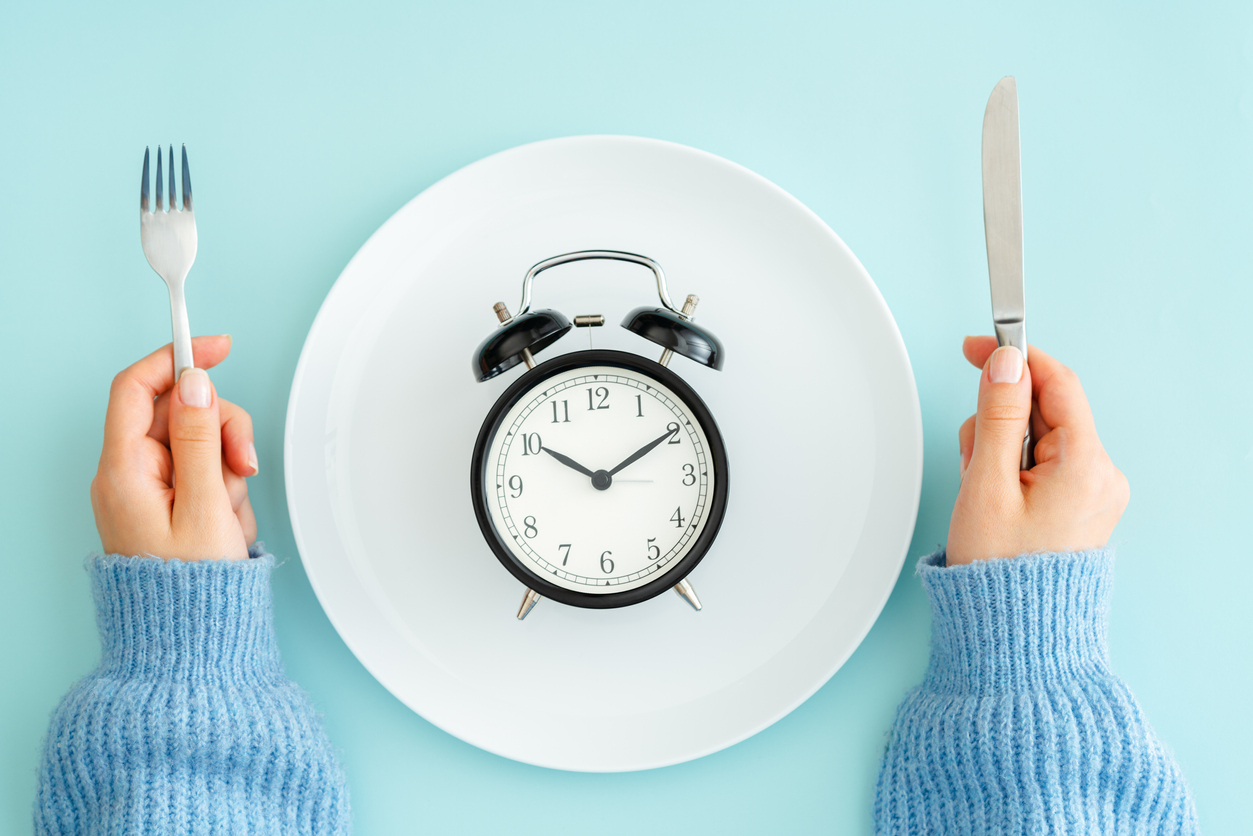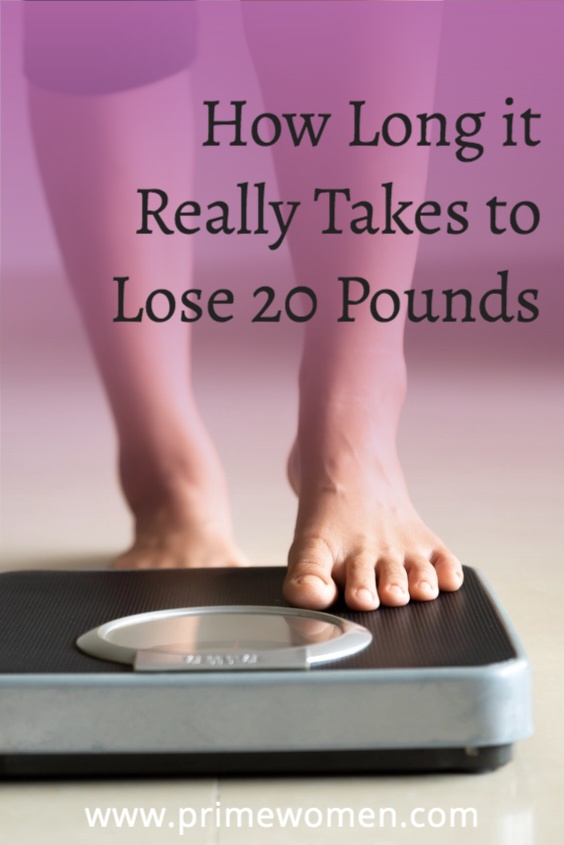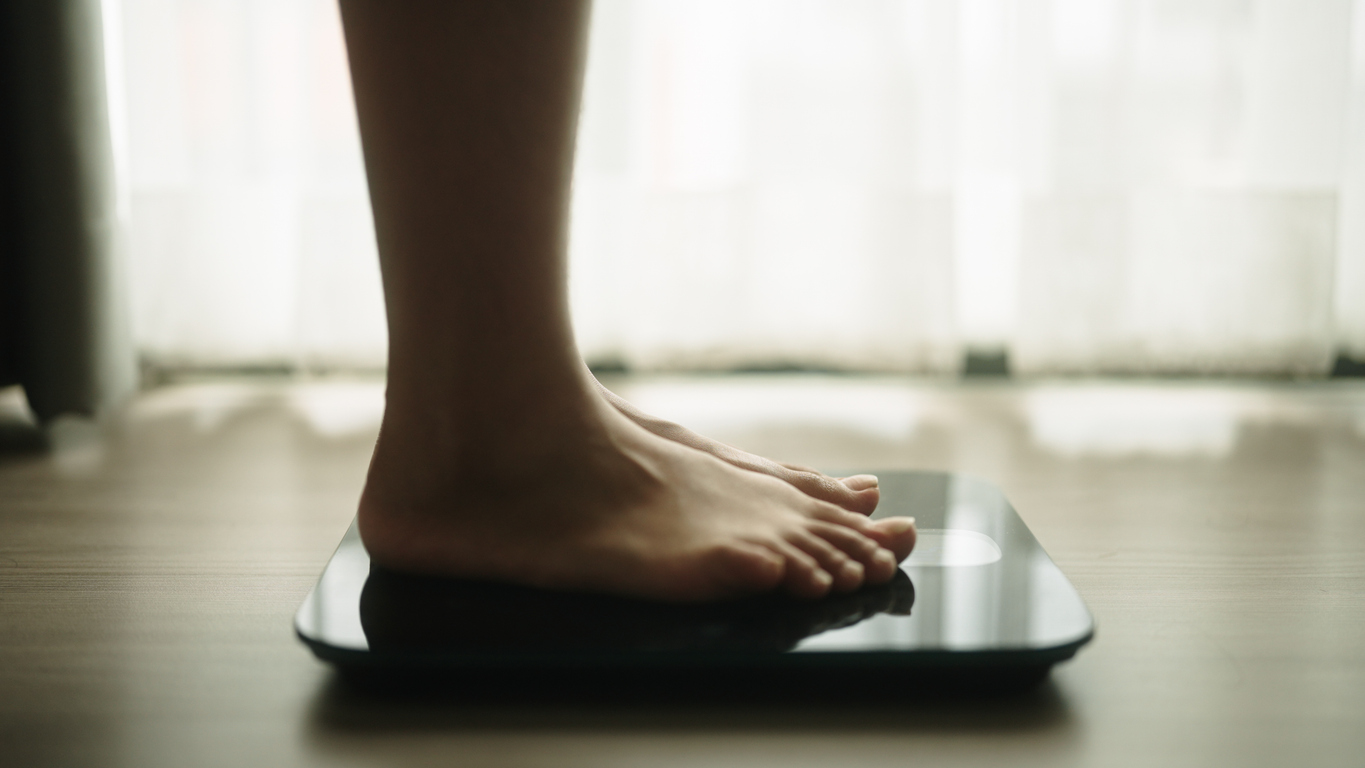If you’re looking to lose weight, you’re probably already aware that weight loss isn’t an easy feat. And while crash diets, deprivation, and a “magic pill” all sound like quick solutions, they’re not effective or healthy. So, if you set yourself a goal of twenty pounds, what’s a realistic timeline here? How long does it really take to lose 20 pounds?
Is it realistic to lose twenty pounds in a month?
It’s entirely possible, but it’s not healthy. Rapid weight loss can make you feel like you’re really making progress and are in control of your weight loss journey. However, you have to realize that if you lose weight rapidly on a crash diet or by using caloric deprivation, you risk losing muscle mass with the weight. This kind of weight loss methodology can wreak havoc on your metabolism, eventually causing you to end up in a worse position than you began.
Generally speaking, you should aim to lose one to two pounds each week. With that in mind, a weight loss of twenty pounds could take as little as ten weeks or even up to ten months. It will depend on your metabolism, your dietary changes, increases in your activity level, and, in many cases, genetics. Just remember that it usually takes most people longer than ten weeks to lose twenty pounds. Everyone moves at their own pace!
Healthy Choices = Success

While there are many lifestyle factors that will play a role in how much and how fast you lose weight, there are a few things you can do to increase your chances of weight loss success. For example, you can start by making sure you get plenty of sleep. The CDC recommends that adults get 7+ hours of sleep each night.
You should also ensure that you’re getting enough water during the day, as staying hydrated plays a crucial role in weight loss and overall health. WebMD recommends that women consume 9 cups (approximately 2.2 liters) of fluid daily. It was very helpful for me to invest in a water bottle that I like and can track my progress throughout the day. If you always have fluids in the car with you or while you’re out running errands, you’ll find that you’re more successful at staying hydrated.
Dietary changes can also make a massive difference in weight loss success. Eating more fiber-rich foods, such as leafy greens and other vegetables, can help you feel fuller for longer. While fruits are much healthier than other food groups, eat them in moderation. While they contain natural sugar, it’s still sugar nonetheless, and too much can cause delays in weight loss.
You should also cut out alcohol completely (or as close to it as possible). You can eat as healthily as you want each and every day, but if you’re pouring a glass or two of wine a night, you’ll never see any changes.
While we’re talking about evening habits, try not to eat too late at night so your body will have time to digest your food from the day before you start over again. Finally, take the approach of ‘everything in moderation.’ Yes, you can eat carbs, but not too many. Yes, you can have a glass of wine, but not two or three, and not every night. Moderation is the key.
Does losing twenty pounds make a difference in appearance?

For most people, losing 20 pounds will affect how they look and, more importantly, how they feel. Your face may appear thinner, and your clothes may start to feel looser; most people will notice. Unfortunately, we all tend to lose weight in different ways, so a 20-pound loss isn’t one size fits all. It’s essential to keep in mind that eating well and making good decisions for your health are the most important things you can do — weight loss is simply a bonus!
Here are just a few ways your body may benefit from losing 5-10% of your body weight if you’re clinically overweight:
- Increased energy and vitality
- Decreased insulin resistance and reduced A1C numbers
- Improvements in good cholesterol (HDL) by about 5 points, which will also lower the risk of heart disease
- Decrease hypertension, both systolic and diastolic, by 5mmHg — reducing the risk of stroke
- Reduce inflammation in blood vessels, helping to reduce the risk of plaque and blood clots
- Lower triglycerides significantly, around 40mg/dL.
Suddenly, those loose-fitting jeans don’t seem so important, right? As you’re making healthier lifestyle changes and swapping out some food on your plate, keep these benefits in mind!
Can you lose 20 pounds faster with intermittent fasting?

Are you wondering if intermittent fasting will help speed up weight loss? The studies have been generally positive, and the various options enable you to find the version of IF that best suits your lifestyle.
5:2 Intermittent Fasting
Studies on weight loss and intermittent fasting have typically investigated the 5:2 diet or alternate-day fasting interventions, which last three to six months. The research revealed that it takes four to six months to lose 20 pounds with no change in diet.
Most intermittent fasting studies surrounding the 5:2 diet protocol or minimal calorie fasting days report significant weight loss. These reports of weight loss on the 5:2 diet range from 3.2% weight loss compared to a control group over a 12-week period to 8% weight loss in an 8-week trial with overweight adults with asthma.
16:8 Intermittent Fasting
A more straightforward method of intermittent fasting for most women is the 16:8 schedule. This time-restricted fasting method involves consuming foods during an 8-hour window and then fasting for the remaining 16 hours each day. This method is popular because many believe it supports the body’s circadian rhythm better.
With the 16:8 schedule, you can adjust your eating time to when you find you are most hungry. If breakfast is something you can take or leave, you may want to consider waiting and having your first meal at noon. Your second meal might be only a snack around 4:00, and then dinner at 7:30. Alternatively, you might have breakfast at 9:00 and your last meal by 5:00.
The beauty of intermittent fasting is that just by limiting the hours you eat in a day, you should be satisfied with consuming fewer calories. Do consult a doctor before attempting intermittent fasting. It is not for everyone, especially those who are hypoglycemic. Assuming your doctor does give you the go-ahead, gradually reduce the hours you consume your meals.
If you are serious about losing 20 pounds, you might want to try PLATE, a weight management program developed specifically for women over 50. Dr. Kathryn Waldrep, an OB/GYN who collaborated with Prime Women on developing PLATE, recommends a 16:8 intermittent fasting schedule. The new PLATE app (app on Apple or Android) allows you to gradually adjust your mealtimes with notifications, along with a meal planner and recording substitutions allowed on the program.
Losing 20 pounds is not easy, but it is very doable if you are committed. Keeping the weight off is much harder. However, if you lose the weight slowly (no more than 1 to 2 pounds a week), you are much less likely to gain the weight back.
Good luck on your road to a healthier you!
This article is for informational purposes only. It is not intended to diagnose, treat, cure, or prevent any disease and is not a substitute for medical advice.
Read Next:
Walking for Weight Loss, Fitness, and Wellness
The Power of Drinking Water to Lose Weight
5 Weight Training Exercises You Need to Start Now








